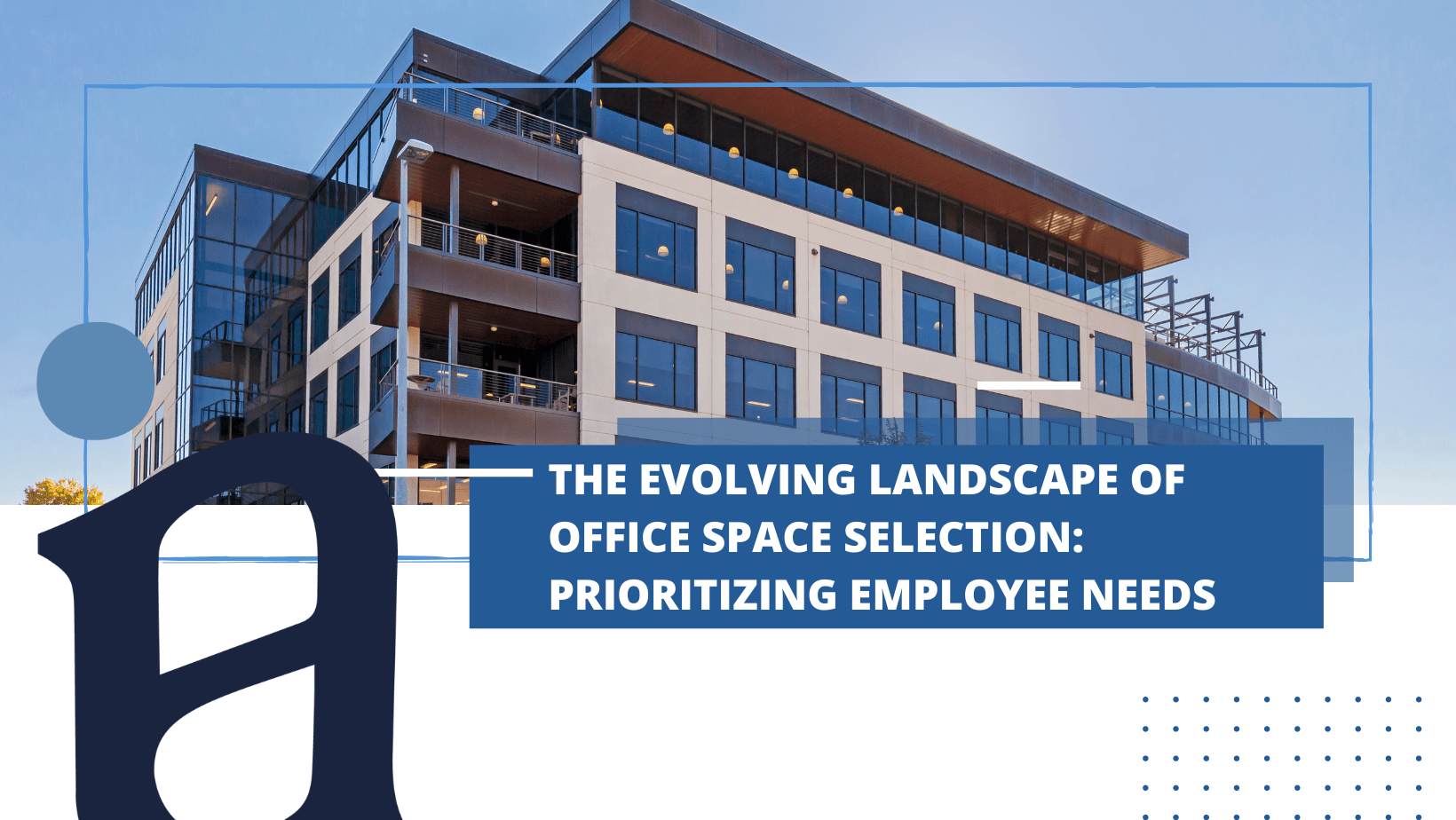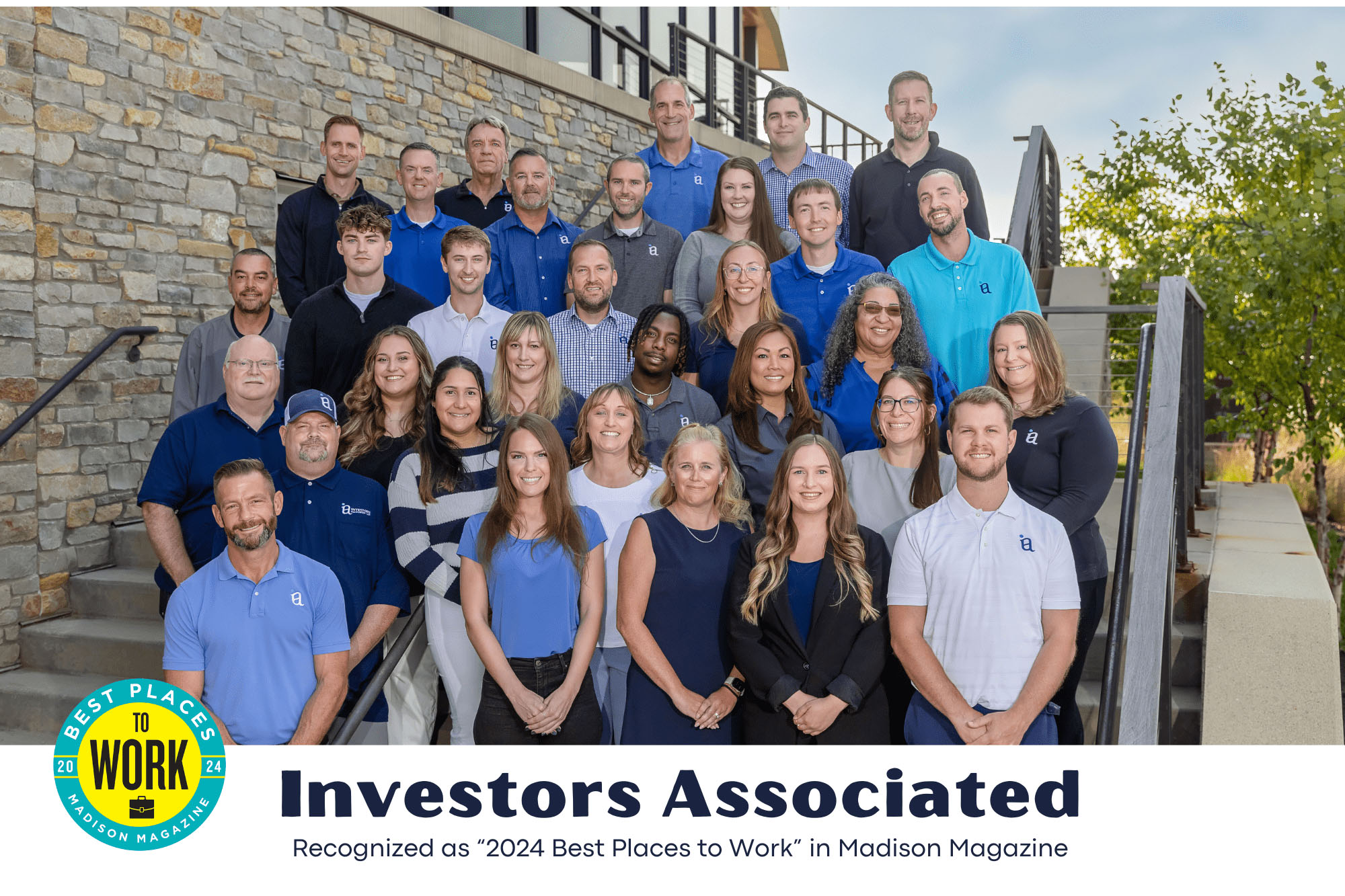Back to All News
October 3, 2024
The Evolving Landscape of Space Selection

SHARE
In over 17 years of experience in property management, I’ve consistently encountered a pivotal question: What drives businesses to select their office spaces? The answers have remained remarkably consistent—price and location. Yet, as we navigate the shifting landscape of the workplace, especially in the wake of the pandemic, it’s clear that these traditional factors alone may no longer suffice.
For many organizations, the financial aspect remains paramount. If a potential office space aligns with the company’s budgetary constraints, it often becomes a viable option. However, this focus on price can overlook essential aspects of employee satisfaction and productivity. Factors such as company growth, downsizing, mergers, or acquisitions often circle back to financial considerations, but they can also signal deeper needs for space and culture that warrant further exploration.
Location is undeniably a crucial factor in office selection. Companies often choose their offices based on proximity to leadership, maintaining a prestigious image, or being closer to clients. However, these decisions should also consider employee accessibility and convenience. Are employees commuting long distances? Is the office located near essential amenities? The location should facilitate not just business operations but also the well-being of the workforce.
The Employee Experience: A New Priority
Over the past four years, a significant shift has occurred in the workplace dynamic, primarily influenced by the rise of remote work. Employees have begun to reclaim agency over their work environments, and companies now face the challenge of enticing them back to the office. This shift calls for a deeper understanding of what employees truly value in their workspace.
To better engage employees, organizations should start asking the right questions:
- Where do your employees live? Understanding commuting patterns can help in selecting a location that minimizes travel time.
- Is there adequate space? Beyond just desks, consider whether employees have access to quiet areas for calls, collaborative spaces, and essential amenities like mothers’ rooms and lunch areas.
- What enhances employee satisfaction? Employees might be motivated by snacks, social interactions, or the need for outdoor space. Recognizing these preferences can shape a more inviting office environment.
- What frustrates your employees about their current workspace? Identifying pain points is crucial for selecting a space that addresses these concerns.
The Importance of Building Management
After addressing employee needs, organizations often overlook a critical factor: the management of the building itself. Key considerations include:
- Amenities in common areas: What facilities are available for relaxation and collaboration?
- Outdoor features: Does the building offer spaces for employees to unwind during warmer months?
- Management responsiveness: How quickly does the management team address maintenance requests? A well-managed building can significantly enhance the workplace experience.
As businesses reevaluate their office space needs, it’s crucial to move beyond the traditional focus on price and location. By prioritizing employee satisfaction and engagement, companies can create an office environment that not only meets their operational needs but also fosters a motivated and productive workforce. The right office space should reflect a holistic understanding of what drives employee happiness and productivity, paving the way for a successful and sustainable future.
At our property management firm, we recognize that a successful office environment extends beyond merely offering space. We prioritize creating supportive amenities that enhance employee satisfaction, such as:
- 24/7 maintenance support to ensure quick resolutions to issues.
- Upgraded break rooms with games and relaxation areas for employees to recharge.
- Food trucks and seasonal events to foster a sense of community.
- Walking trails for outdoor breaks, helping employees connect with nature.
These initiatives are designed not just to attract tenants but to cultivate a thriving workplace culture that values the employee.


